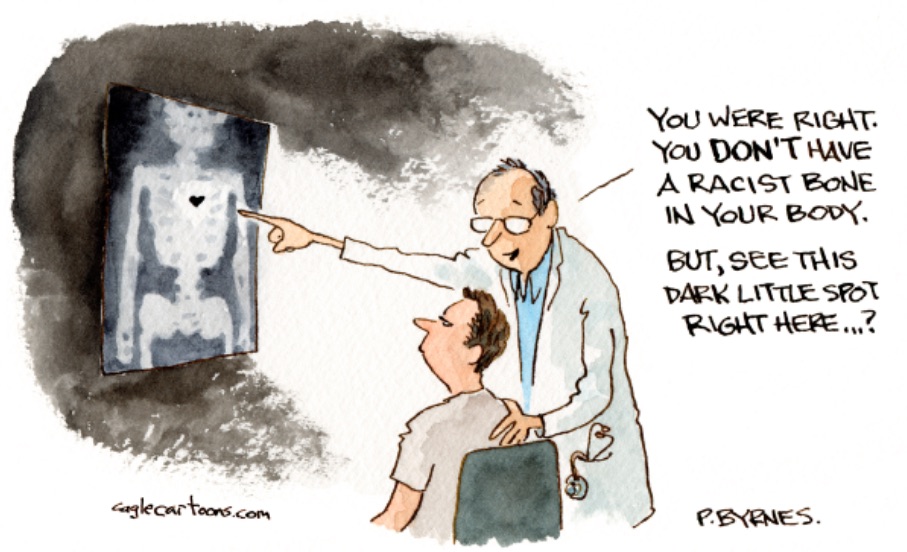Racism of Any Color Requires a Response
Central Coast BIPOC Response to Racist Comments made by Latinx Members for the Los Angeles City Council

The revelations of the horrific, racist, private conversation by members of the Los Angeles City Council brings up genuine and raw emotions, as well as important realizations that are needed to achieve racial justice in our society.
We have all become painfully aware of the racist comments made in secret by L.A. Council President Nury Martinez, and councilmembers Kevin de Leon and Gil Cedillo. The comments were caught on an audio recording, including hateful language toward African Americans, Indigenous communities, LGBTQIA+, and Jewish communities. Their 2021 conversation centered on their plans for how they and their allies would politically disenfranchise other people of color, in particular, African Americans in Los Angeles, through the city’s redistricting process.
As difficult and painful as these revelations have been for Black, Indigenous, and people of color (BIPOC) in Los Angeles, it raises an important reality — these elected officials are not just a few bad apples in L.A. City Hall. There exist Latinx and other BIPOC elected officials and community leaders in Los Angeles and in other localities who have deliberately worked to advance policies from a place of internalized racism — principally anti-Blackness, colorism, and anti-Indigenous racism.
A growing number of Latinx leaders are speaking out publicly about the realities that racism and anti-Blackness are not only pervasive throughout our society but are very real within the Latinx community. Such sentiments have been swept under the rug for too long, and therefore must be exposed and addressed. Representing the efforts to address the realities of colorism and anti-Indigenous racism in the Latinx community, in 2012 the Mixteco Indigenous Organizing Project (MICOP) had to go as far as advocating successfully for a ban in the use of derogatory terms, such as “oaxaquita,” in three Latinx-dominated school districts in Ventura County.
One of the problems is that the current political process fails to vet candidates of all races and identities on issues of racism. It fails to examine the stands of candidates on policies that either work to achieve equity, or those that seek to perpetuate inequity, specifically policies that are anti-Black, as well as those that hurt the working poor and immigrants, including recent Indigenous immigrants from Mexico.
District elections have the potential to achieve equitable racial political representation. But the redistricting process has often become a zero-sum game, pitting one racial group against another. Some “progressive-thinking” elected officials narrowly work for one historically underrepresented group, showing no interest in equal representation for the broader BIPOC community. White women in leadership roles, who we would hope would be natural allies, too often, however, avoid sharing power and are driven by what is politically expedient for themselves.
Los Angeles is considered a liberal city. Yet these racist comments shed light on the fact that even in those localities that like to see themselves as liberal or more socially conscious, forms of bigotry are deeply rooted historically. And that bigotry is reinforced through policy decisions made by elected and appointed officials and supported by community leaders both white and BIPOC.
Disturbingly, white supremacist efforts have had some success in undermining and even eliminating school programs that seek to build an appreciation for racial diversity by educating teachers and students about the historical and current realities of racism. It is urgent that we all strengthen our support for school programs, such as ethnic studies, that aid students in valuing their own cultural identity while understanding and appreciating the differences around them.
The Fund for Santa Barbara is heartened by and will continue to put its full support behind anti-racist community efforts. One of these important efforts is the one being led by the NAACP of Santa Barbara and Gateway Educational Services to bring together BIPOC leaders throughout our region for conversations and relationship-building. These efforts are needed more than ever.
Anti-blackness continues to thrive in our community in issues from housing and education to health care and criminal justice reform, and in every sector, from business, K-12 and higher education, government, philanthropy, and the nonprofit sector. If you are Black/African American, there is no escaping the toxicity and aggression of the hate.
Racial hatred is saddest when coming from other people of color. However, the exposure of racism among Latinx members of the L.A. City Council must not be allowed to undermine important alliances being built today within BIPOC communities. The realization of these deeply rooted forms of internalized racism, even as they currently exist among other oppressed groups, must be understood in order to inform the hard work of eliminating all forms of racism and bigotry from our society — an endeavor that has room for all of us.
Connie Alexander is the president of the NAACP Santa Barbara. Marcos Vargas is the executive director of the Fund for Santa Barbara and a member of the NAACP Santa Barbara.



